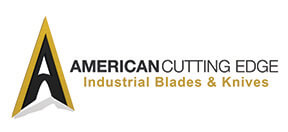Tyler Crawford
-
One of the goals of the plastics industry is to close the loop of plastic production to increase the use of existing materials and significantly reduce waste. You can't turn around without seeing plastics. They're absolutely everywhere. As far as materials go, plastic is cheap and can be used in seemingly endless applications. It's estimated that a single plastic bag only has a 15-minute lifespan. Brief use of plastic products has become a hallmark of what many consider to be a modern disposable lifestyle in which many plastic products are only used once.
Six Sobering Statistics:
-
Most underwater pelletizers look to their blades when pellets change consistency or production decreases. As the most common wear-out part, underwater pelletizing blades should be inspected at routine intervals. However, many operators miss-out on cost reduction opportunities by skipping die inspections and maintenance.
Both carbide-faced and solid D2 or M2 pelletizer dies can be sent out for maintenance to dramatically reduce maintenance costs. Carbide-faced dies provide longer useful life than standard tool steel dies and are generally utilized in polypropylene and polyethylene pelletizing applications in clean environments. If minimized upfront costs are the primary concern, dies manufactured of solid tool steels provide a less expensive alternative to carbide-faced dies.
"The best approach is to dig out and eliminate problems where they are assumed not to exist.“ - Shigeo Shingo
How to Implement a Die Maintenance
-
Industrial improvement projects often boil down to a central theme: do it better, for less cost. However, these two goals can seem run at odds with one another, but their opposition is only surface deep, especially where maintenance is concerned.
Most of us have experienced the frustration of a dead car battery or a flat tire. It always seems to happen at the most inconvenient time, causing us to miss out on an important meeting at work or a much anticipated social event.
In the moment, our actions are fueled by heightened anxiety. The issue must be resolved now! This urgent need drives us to spend more money on a fix than we would typically deem acceptable just to find a resolution as quickly as possible. If our tire blows-out on the highway or our battery dies in a dangerous part of town, our failure to perform preventive maintenance could even pose a physical threat, both to us and those around us. If we fail to get our oil changed on time, we are putting undue
-
In the past six decades, since the mass production of plastics began, the global production of plastics has increased rapidly resulting in the development of 8.3 billion metric tons of plastics. Since plastics take more than 400 years to degrade, plastics recycling programs are essential to ensure both the health of our planet and the health of the plastics industry.
Recycling plastics keeps the product out of landfills and oceans; however, we need to recycle more. According to Science Advances, 79 percent of the plastic produced in the previous 60 years is accumulating in landfills or resting as litter.
Why is Recycling Plastics So Important?
-
As a pelletizer, you understand the costs associated with downtime. You also understand the costs associated with procuring new blades and rotors. But did you know that you can control these costs with proper blade inspections and maintenance?
"Continuous improvement is better than delayed perfection." - Mark Twain
When the Unexpected Happens
While facilities that pelletize polypropylene materials, often run clean environments we understand that there are occasions when accidents do happen. Some of these customers run carbide inlaid pelletizer blades that are composed of a cold rolled steel, such as 17-4 or 440, and a solid carbide inlay that is brazed to the steel surface.
An ACE customer recently experienced the unexpected first-hand when a foreign object entered the pelletizer and reduced the
-
When it's time to replace your industrial machine knives or blades, you might not realize you have a choice when comes to your knife vendor. OEM (Original Equipment Manufacturer) replacement knives are those that are made or sold by the manufacturer of the machinery.
Finding the right industrial blade and knife supplier isn't as easy it may seem. You might think it could be as simple as ordering the part number of the knife or blade that corresponds to the model machine you're running. However, there's a lot more that goes into buying replacement knives than part numbers and placing the order.
If you're simply buying the part you need, replacing the knives, and moving on with the next item on your list, you could be missing out! Working with a trusted industrial knife supplier like American Cutting Edge can provide you with an opportunity

